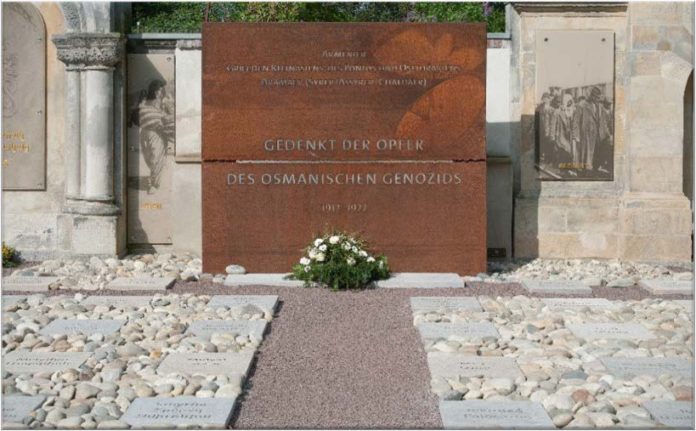BERLIN (FÖGG/VGM) – The Association for the Promotion of an Ecumenical Memorial to Genocide Victims in the Ottoman Empire (FÖGG) has created a memorial for the more than three million Christians – Armenians, Greek Orthodox as well as Aramaic, Assyrian and Chaldean Christians – who were victims of death marches, forced labor and massacres during the last decade of Ottoman rule (1912-1922) in Berlin-Charlottenburg between 2014 and 2018: http://www.genozid-gedenkstaette.de/impression/index.html
As far as we know, this is the first memory-cultural project with such an inclusive approach, even in international comparison. In addition to this, our website Virtual Genocide Memorial (VGM) has now gone online: https://virtual-genocide-memorial.de/. The website provides information about the demographic, socio-economic and cultural local and regional specifics of the Armenian, Greek and Aramaic/Assyrian/Chaldean communities in the Ottoman Empire and in the 1914 and 1918 Ottoman-occupied territories in Northwest Iran. VGM includes texts – memoirs of those affected and third contemporary witnesses, information on the history of Christian communities in the Ottoman Empire – as well as visual material for currently two of a total of 17 Ottoman provinces, namely the provinces of Van and Bursa (Greek: Prousa). The remaining 15 provinces will be added continuously over the coming years.
Of particular importance is the presentation of the intergenerational consequences of genocide, as described by our member Anastasia Kasapidou-Dick in her essay “Patrida – The Lasting Pain of the Lost Homeland” using the example of Koronixa (Sancak Gümüşhane, Vilayet Trabzon/Trapezunta).
The board of FÖGG e.V. and the editorial staff of VGM under Prof. h.c. Dr. Tessa Hofmann look forward to your contributions on family and individual fates, historical photographic material, land maps and postcards, as well as your suggestions. The English website is hierarchically structured and searchable according to the Ottoman administrative division.








